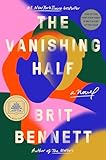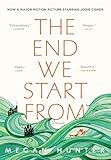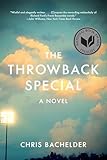Since mid-March, I’ve had Rayanne’s famous phrase from “My So-Called Life” running through my head: “We had a time, didn’t we?”
2020 is not a nineties teen drama, but it is adjective-defying. And because so many days resemble one another, it feels endless. It is a time.
I think of it when my five-year-old plays school, saying to her Barbies, “Can everyone hear me? Please remember to mute yourselves,” or when my nine-year-old models his blue light-blocking glasses, or when my baby throws the masks from the mask bowl all over the entryway. (A mask bowl! A bowl…of masks! This isn’t a George Saunders story! This is life now!) I think of it when we’re all dancing around the house before dinner, safe and lucky, and keenly aware of our safety and luck.
I thought of it when my husband, and then my oldest son, tested positive for the virus, and had to isolate. Halloween, my daughter’s birthday, and the Presidential Election passed with them shut away. Those were the longest and loneliest two weeks of my life. They are fine, we are fine. We are safe. We are lucky.
I thought of it when we went to the beach this summer, nearly every other weekend because what else was there to do, and I slipped into the caress of the ocean and felt legitimately healed, however briefly.
And I thought of it when we woke up and found our dog dead on the living room floor, eyes open, tongue puddling out of his open mouth.
We had a time, didn’t we?
Oh, but I’m supposed to talk about books. I read a lot of average books. And a lot of good ones, too. Through everything, save for a lost week when I obsessively refreshed the New York Times to see if they’d called Pennsylvania for Biden, I read. Books helped me get through this year.
Like everyone else, I loved The Vanishing Half by Brit Bennett. This novel and The Glass Hotel by Emily St. John Mandel win prizes (from me) for Best Structure. I loved sitting back and letting the chapters move from one place to the next, from one character to the next. I could live inside Brit Bennett’s rich summaries and in Emily’s spare stylish mysterious moments. Also, please, can I go stay at that eponymous glass hotel for a month? By myself? Thanks.
In the spring, I stayed up late to read all of The End We Start From by Megan Hunter in the span of a couple hours. Hunter’s debut is about an unnamed mother who must make sure she and her newborn survive a massive, end-times flood in London; because it’s a short, epigrammatic novel, I recommend consuming it in one sitting. Let it maintain its mesmerizing haunt. Dread-inducing apocalypse aside, Hunter’s descriptions of babies and the postpartum body are the best I’ve ever read. She describes milk released from engorged breasts as “honeyed pain.” I gasped in recognition.
I loved The Throwback Special by Chris Bachelder, about a group of men who meet annually at some bland chain hotel to re-enact a famous football injury I could not tell you much about because I don’t even know, and don’t care to know, how football works. No matter. This novel is so funny, I laughed until I was crying (really), and it was so tender, I still occasionally think of its characters as real men I knew once. I wonder how they’re doing. The writing is daring and playful, its shifts in tone and perspective so skilled and surprising. Another sort of person might call this novel sui generis, but I don’t know how to pronounce that word, so. Please just read it.
I took Heartburn, Nora Ephron’s only novel, with me on our single vacation: a rental house in Palm Springs. It was the single most pleasurable reading experience of my year, maybe this decade. I floated on a raft in a turquoise pool in 112-degree weather, sometimes a little tipsy from a tequila-based cocktail, or high from a gigantic sugary iced coffee, and let myself be carried away by this novel, which probably everyone else but me has already read. If you are one of the few left who haven’t read it, it’s Ephron’s autobiographical novel about a food writer whose husband cheats on her when she’s pregnant. It’s got recipes, it’s got rants, it’s got Ephron’s trademark genius wit and her wry it-sucks-being-a-woman-in-hosiery perspective. I wish there were more contemporary novels like this: essentially stand-up comedy routines that will make you cry. The only thing Ephron gets wrong is capers—which the narrator claims no one actually likes. I love capers.
As the year ends, I keep returning to my most memorable reading experience. It’s branded in my mind. Thursday, March 12. I had taken my own novel manuscript, printed out and bound at Staples, to one of my favorite coffee shops to read with a red pen. I needed a cappuccino, for courage. I remember all of it vividly, not because of what I read (please, ugh, no), but because of where I was, and when: in a public space, at the cusp of quarantine. The shop was crowded, and there were no free tables, and so I had to settle for a stool at the narrow bar by the front window. I recall the cacophony of people talking, and the grinding and frothing of coffee and milks. No face masks yet, no plexiglass, no six-feet-apart. The shop had a last-day-of-school mania because we all knew what was about to happen. We had read the news. We had stopped sleeping. Our hands were scaley from washing. That day, I tried to read my book, and I couldn’t. I just drank my coffee and looked around at everyone and everything. Beneath my panic was also elegy.
God, how I miss a crowded coffee shop.
What a time we’ve had, haven’t we?
More from A Year in Reading 2020
Don’t miss: A Year in Reading 2019, 2018, 2017, 2016, 2015, 2014, 2013, 2012, 2011, 2010, 2009, 2008, 2007, 2006, 2005













